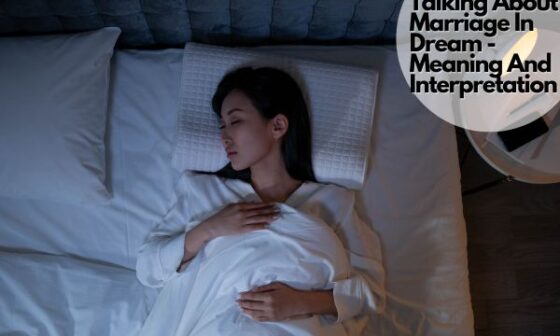Mother-son marriage, also known as maternal incestuous relationships, has long been a subject of intrigue and controversy. This unique and taboo topic explores the dynamics, implications, and societal perceptions surrounding unions between a mother and her son.
In this article, we delve into the historical, cultural, psychological, and legal aspects of mother-son marriages. We will also see 5 arguments against mother-son marriages. By examining case studies, considering ethical considerations, and analyzing the psychological impact, we aim to shed light on this complex issue.
Join us as we navigate the intricacies of mother-son marriages and explore the debates surrounding this sensitive topic.
Mother-Son Marriage
Mother-son marriage, also referred to as maternal incestuous relationships, is a term used to describe a marriage or intimate union between a biological mother and her adult son.
It involves a romantic, sexual, or emotional relationship that goes beyond the traditional parent-child bond. Mother-son marriages challenge societal norms and face strong social stigmas due to the complex dynamics, ethical concerns, and legal restrictions surrounding such relationships.
The practice of mother-son marriage varies across cultures and historical contexts, and it remains a topic of controversy and debate.
Cultural And Historical Context
Cultural and historical contexts play a significant role in understanding the phenomenon of mother-son marriages. While these unions are considered taboo in most contemporary societies, there have been instances of mother-son marriages documented in various cultures throughout history.
In some ancient societies, mother-son marriages were practiced as a means to maintain royal bloodlines and consolidate power. For example, in ancient Egypt, pharaohs often married their mothers or sisters to ensure the purity of their lineage and secure their position as divine rulers.
Similarly, in some pre-modern societies in Central and South America, mother-son marriages were practiced among nobility or as part of religious rituals.
The cultural context surrounding mother-son marriages can also be influenced by beliefs, customs, and social norms. In some societies, particularly in rural or isolated communities, limited options for marriage partners can lead to a higher incidence of incestuous relationships, including mother-son marriages.
These practices may be shaped by economic factors, social isolation, or cultural traditions that prioritize familial loyalty and preservation.
It is important to note that while historical and cultural contexts can provide insights into the prevalence of mother-son marriages, they do not justify or condone such unions.
Contemporary societies widely condemn and consider these relationships as incestuous and morally unacceptable due to ethical concerns, psychological implications, and legal prohibitions in place.
Understanding the cultural and historical context of mother-son marriages helps shed light on the diversity of human practices and beliefs across time and societies. However, it is crucial to approach this topic with sensitivity and critical analysis, recognizing the ethical boundaries and social norms that exist in today’s world.
Psychological and Societal Implications
Psychological and societal implications surrounding mother-son marriages are complex and multifaceted. These types of relationships can have significant impacts on the individuals involved as well as on the broader social fabric.
Here are some key psychological and societal implications to consider:
1. Family Dynamics
Mother-son marriages disrupt traditional family dynamics and roles. The boundaries between parent and child become blurred, which can lead to confusion, emotional turmoil, and challenges in establishing healthy familial relationships.
2. Emotional Consequences
Mother-son marriages often involve deep emotional attachments between individuals. However, these attachments can also be accompanied by feelings of guilt, shame, and confusion due to societal disapproval and internal conflicts.
3. Oedipal Complex
Mother-son marriages may be rooted in the psychological concept known as the Oedipal complex. According to Freudian theory, this complex involves a son’s unconscious desire for his mother and rivalry with his father. Engaging in a romantic or sexual relationship with the mother can perpetuate unresolved psychological conflicts and have long-lasting emotional consequences.
4. Social Stigma And Taboos
Mother-son marriages are heavily stigmatized in most societies. They challenge deeply ingrained cultural norms, moral values, and incest taboos. As a result, individuals involved in such relationships may face social ostracism, judgment, and rejection.
5. Legal Ramifications
In many jurisdictions, mother-son marriages are explicitly prohibited and considered illegal due to the potential harm, abuse, and violation of consent involved.
Legal And Ethical Considerations
Legal and ethical considerations surrounding mother-son marriages are crucial in shaping societal norms and determining the boundaries of acceptable behavior. Here are some key points to consider:
1. Legal Prohibitions
Mother-son marriages are generally considered incestuous relationships and are explicitly prohibited by law in most jurisdictions. Laws against incestuous relationships exist to prevent potential harm, protect vulnerable individuals, and maintain the integrity of the family structure. Engaging in a mother-son marriage can lead to legal consequences, including criminal charges and penalties.
2. Consent And Coercion
One ethical concern regarding mother-son marriages is the issue of consent. It is essential to ensure that both parties freely and willingly consent to the relationship without any form of coercion, manipulation, or abuse. The power dynamics inherent in the parent-child relationship can complicate the notion of true consent.
3. Psychological Impact
Mother-son marriages can have profound psychological consequences for the individuals involved. The close bond and power dynamics inherent in the mother-son relationship can blur the lines between appropriate familial love and romantic or sexual relationships. Such relationships may result in emotional conflicts, trauma, and psychological harm.
4. Incest Taboo
Mother-son marriages challenge the universal incest taboo that exists in most societies. This taboo is rooted in biological, psychological, and social factors and is designed to prevent genetic disorders and maintain the stability of family and societal structures. The violation of this taboo raises ethical concerns and can lead to societal backlash, stigma, and
Future Implications And Possible Solutions
Future implications and possible solutions regarding mother-son marriages are areas of ongoing discussion and exploration. While the topic of mother-son marriages remains highly controversial, there are several considerations for the future:
1. Evolving Social Attitudes
Society’s attitudes and perspectives regarding relationships and marriage continue to evolve over time. As societal norms shift, there may be changes in how mother-son marriages are perceived and addressed.
2. Legal Frameworks
The legal frameworks surrounding incestuous relationships vary across jurisdictions. In many countries, mother-son marriages are strictly prohibited and considered illegal. Future debates may focus on the reevaluation of existing laws or the development of new legislation to address such relationships.
3. Support And Counseling Services
Individuals involved in mother-son marriages may require psychological support and counseling due to the complex dynamics and potential emotional challenges. Developing appropriate support systems and resources can help address the psychological well-being of those affected.
4. Education And Awareness
Promoting education and awareness about the psychological, social, and legal implications of mother-son marriages can contribute to a better understanding of the issue. Open dialogue, public discussions, and dissemination of accurate information can help dispel misconceptions and foster informed conversations.
5. Ethical Considerations
Discussions on the ethical boundaries and moral dilemmas related to mother-son marriages may continue. Exploring the ethical dimensions and engaging in ethical debates can contribute to a deeper understanding of the complexities involved.
It is important to note that any potential solutions or future implications should prioritize the well-being and safety of all individuals involved, as well as align with the legal and ethical frameworks established within respective societies.
Arguments Against Mother-Son Marriages
Arguments against mother-son marriages are based on various ethical, psychological, and societal concerns. Here are some common arguments:
1. Incest Taboo And Moral Boundaries
Mother-son marriages violate the widely accepted societal norm of the incest taboo, which prohibits sexual and romantic relationships between close-blood relatives. This taboo is rooted in the potential for genetic disorders, power imbalances, and the preservation of family dynamics.
2. Psychological Harm
Mother-son marriages can lead to significant psychological harm for both the individuals involved and other family members. These relationships may blur the boundaries of the parent-child relationship, causing confusion, emotional distress, and long-term psychological consequences.
3. Power Imbalance And Exploitation
Mother-son relationships inherently carry a power imbalance, as the mother-son dynamic is rooted in nurturing, caregiving, and authority. Engaging in a romantic or sexual relationship within this power dynamic raises concerns of manipulation, coercion, and exploitation.
4. Family And Social Disruption
Mother-son marriages can disrupt the stability and harmony of the wider family and social network. Such relationships may lead to tensions, ostracism, and conflicts within the family, as well as facing social stigma and judgment from the broader community.
5. Potential Genetic Risks
In cases where the mother and son have biological ties, there is an increased risk of genetic disorders and abnormalities in any offspring resulting from the union. This poses significant health concerns for the potential children and raises ethical questions about knowingly subjecting them to such risks.
It is important to note that these arguments are not exhaustive and that opinions on mother-son marriages can vary depending on cultural, religious, and individual perspectives.
Conclusion
The subject of mother-son marriage raises important questions about cultural norms, psychological well-being, and ethical boundaries. While mother-son marriages have been practiced in various historical and cultural contexts, they continue to face strong social stigmas and legal regulations in many societies.
By understanding the psychological impact and societal implications, we can engage in informed discussions and debates about this complex topic. As perspectives and attitudes continue to evolve, it is crucial to approach the subject of mother-son marriage with empathy, open-mindedness, and a recognition of the intricate factors at play.
Together, we can foster a deeper understanding of this controversial issue and work towards a more inclusive and compassionate society.”







